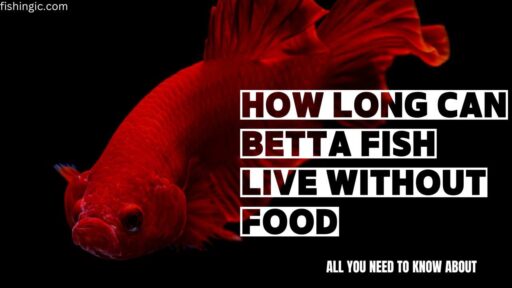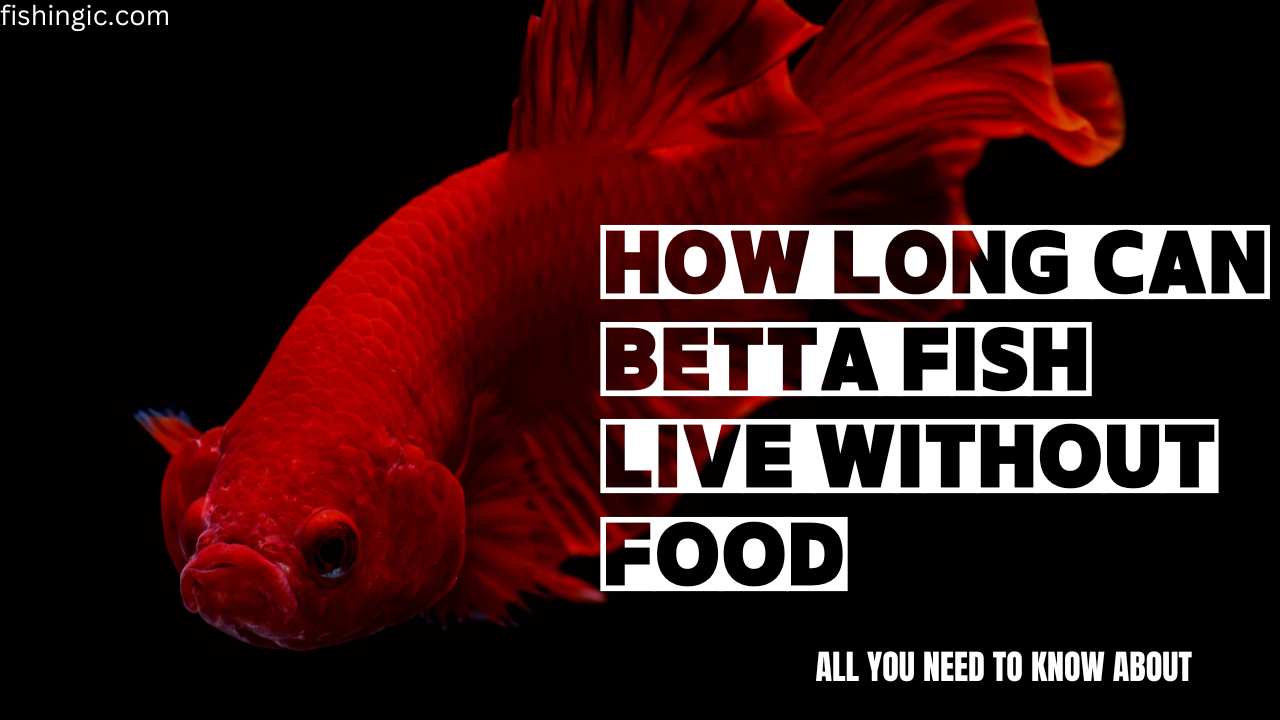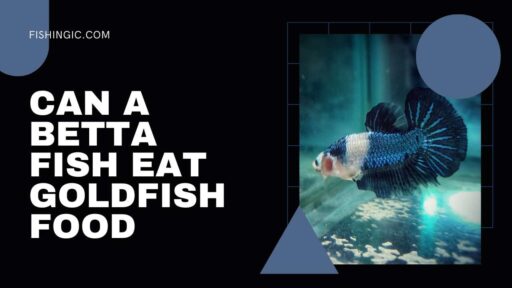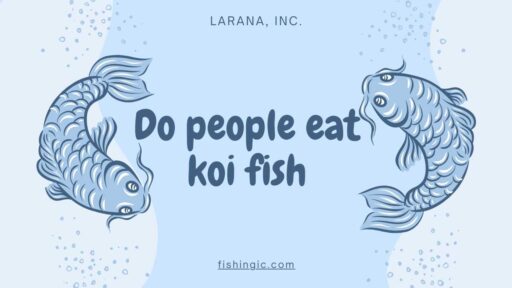Uncover the secrets of Betta fish survival without food on our website. Enhance your knowledge on Betta fish care and ensure their well-being for years to come.
About How Long Can Betta Fish live Without Food
Do you ever wonder How Long Can Betta Fish live Without Food can go without food? They are tenacious, but they have a breaking point. We will discuss the factors that affect their ability to fast and find out how long they can survive without eating anything.
Understanding the Feeding Habits of Bettas
To know how many days betta fish can live without food, we must first understand when and under what conditions they eat. In nature, such species as betta fish are carnivorous, featuring the consumption of insects, larvae, and small crustaceans as their main dietary preferences.
The digestion system of these fishes is composed of a tiny stomach that often consumes low quantities of food rather than huge amounts at the same time. In terms of meal choices, these fish are very selective and usually ignore some feeds; hence, anyone who keeps them should make sure that a balanced diet consists of high-quality pellets, freeze-dried or frozen foods, plus occasionally live or frozen feed to meet all nutritional requirements.
Factors That Affect Life Without Food for Betta Fish
With their colorfully flowing fins, these little creatures have won the hearts of many people due to their agility. Nonetheless, even such kinds of champions have limitations, especially regarding survival with no food delivery. The main things that determine if a betta fish can starve include here:
Internal Factors:
Health Status: During fasting periods, sickly ones would be more likely to die compared to healthy Betta fish, which do not have any underlying health conditions. Such times often lead to more frequent illnesses in case an immune system gets weaker.
Age and Metabolism: Fry (or young bettas) burn energy stores faster than adults; thus, younger fry generally would not last very long if there were no meals.
External Factors:
Water Quality: Clean water is vital during fasting periods because ammonia spikes or deteriorating water quality make it impossible for this Betta fish to remain hungry for long. Waste products, when there is no regular defecation, become more toxic for fish.
Temperature: Metabolism is affected by water temperature. Lowering the water temperature slows down the metabolism of a Betta fish, enabling it to save energy during fasts. However, below (78°F – 82°F) are stressful temperatures with adverse effects on their health.
Long Periods without Eating:
Survival mechanism: Although they are able to stay without food for quite some time, eventually betta fish will enter into starve mode. It removes muscle tissue as fuel for this stage survival leading to weakened body, organ breakdown and decreased immunity, which in turn leaves it susceptible to diseases.
Shortening of Life Span: Pushing the boundaries of how long bettas go without eating also shortens their lifespan. A balanced diet and proper care throughout life should be ensured for overall good health and well-being.
Alternatives for Long Fasting:
Strategic fasting days: Instead of going without food you can plan a week where they have no feeding at all so that their stomach can rest while allowing them to enjoy mini reset benefits, hence keeping them healthy.
Automatic Feeders: If you are away for a short while, you may want to consider purchasing an automatic feeder that dispenses small amounts of food when you are not there. Nevertheless, it is important to use these feeders correctly as they can overfeed or spoil water quality in a very short time.
Credit: GPB Channel
How Much Should A Betta Fish Eat?
This little-known fighter called Betta Fish sometimes bites more than he can chew. How long do betta fish live without eating anything?
Time Duration:
On average, healthy adult bettas should be able to survive without eating for 2 to 4 weeks, but this is discouraged.
Key Factors:
Health: A sickly betta has fewer chances in life compared to a healthy one.
Water Quality: This is crucial during fasting periods because ammonia spikes or deteriorating water quality will greatly decrease their ability to withstand such conditions.
Age and Metabolism: Younger Fry have high metabolism rates and hence need frequent feeding, while adults may survive longer without food
Dangers of Long Fasting:
Starvation Mode: Although Betta fish don’t need food, after some time they go into starvation mode, where the muscle starts wasting away the immune system becomes weakened significantly, and organs start being damaged.
Shortened lifespan: The lifespan of these fishes gets shorter every day they spend without any meals at all.
Options when Taking Long Breaks from Eating:
Fasting Days: Instead of going on long fasts, include planned fasting days at least once weekly in their diet. There are no adverse health effects associated with this, as it helps them reset their digestive systems again.
Auto Feeders for When You Are Away for Few Days: If you’re planning on taking vacation trips that take about two or three days, you can buy auto feeders that release small amounts of food at specific intervals.
Hunger and Malnutrition Symptoms in Betta Fish
Betts become malnourished and starved when they do not eat. This can be identified by lack of activity, dulled coloration, fin rot and noticeably slimmer body. Males too may become more aggressive or lethargic as a result. Therefore, it is important for betta owners to keep an eye on such indicators and take prompt action so that the fish gets the needed nutrition.
Risks and Consequences of Not Feeding Betta Fish
Bettas suffer incalculably from improper feeding habits. When you starve them for long periods, their immune systems become weak, leading to frequent illnesses and infections. It even gets worse when some organs fail to function other than stunted growth or death afterward. We must, therefore, be responsible pet owners by providing proper care and nourishment to our betta fish friends so as not to expose them to these dangers.
Tips for Ensuring the Well-being of Betta Fish During Periods Without Food
Betta fish are cool pets for aquariums due to the cool characters they have and how lovely their fin looks. They are hardy but still fragile; hence, they need constant proper care, such as some days without food. The following tips can help guide you in taking care of your Betta during this short period without feeding him:
Why Fasting Matters:
Digestive System Reset: Like humans, bettas also benefit from a digestive system reset once in a while which allows all food wastes previously eaten to be excreted completely thus promoting good health.
There are a couple of things which turn out to be almost universally true about keeping Betta fish. One of these is that they are very pretty. Another one is that their stomachs are actually quite tiny. More often than not, however, dietary matters are the most important at any given time when it comes to them.
How many times should I go without food?
Keep things balanced: Fasting should be done every day but it can just be effective on only one day per week.
What is their age?
The young growing Fry may require more frequent smaller meals; thus, consult a breeder or fish store for specific feeding recommendations.
Maintain Water Quality:
This does not mean fasting will replace clean water, as there is no substitute for cleanliness. During fasting periods when, ammonia and nitrite spikes are likely to increase, which can be hazardous because their immune system might be slightly weak and change water regularly.
Make sure you watch out for this:
Healthy Betta during fast: normal activity levels and coloration
Warning signs: However, if your betta looks dull, lethargic, inactive and has trouble swimming, then it could mean something else apart from being hungry hence consult an experienced aquarist or veterinarian.
Feeding Your Betta Fish the Right Way
Betta fish are popular pets in aquariums, and they have beautiful coloration and interesting personalities. But what does it take to keep such beauties vibrant? Well, nutrition! Here’s all you need to know about feeding your Bettas for better health and vibrant colors:
Understand Betta Dieting:
Carnivorous Quest: They feed on insects by nature since they have a genetic predisposition towards carnivory. Such a diet in the wild consists mostly of mosquito larvae, small worms, and some crustaceans, so an imitative diet consisting mostly of protein-based prey will be much welcome to them.
Selecting Proper Food:
Go Beyond Flakes: so don’t just stick to the usual flakes! Offer a balanced diet of good quality betta pellets that may sometimes be supplemented with flakes designed specifically for Bettas and occasionally live or frozen bloodworms/brine shrimp/daphnia to keep them healthy but also entertained.
Portion sizes matter: Their stomachs are small. Overfeeding can cause problems inside the tank as well as health problems among others. Normally, feed them 2-3 pellets/amount of flake food equivalent to their eye size once in the morning and then again in the evening.
Frequency of Feeding:
Feeding two times a day is enough for an adult Betta fish. However, betta fry (younger ones) might require more frequent feeding so ask a breeder or fish store for suggestions.
Benefits of fasting: Pick one day every week when you do not feed your betta thus its digestive system can have time off and it will not grow fat due to overeating.
Other useful tips:
Listen To Your Betta: If your fish does not eat, there could be other problems, such as sickness or poor water conditions.
It’s All About Surface Feeding: As such, various devices like feeding rings and tweezers help reduce waste during feeding while giving them all they deserve.
Get Rid Of Leftovers: Siphon out any uneaten food after 2 minutes from the aquarium before it rots and contaminates the water.
Betta fish, with their variety of colors and their elegant fins, are very popular inhabitants of aquariums. Nonetheless, there are some common misconceptions about them that exist out there. Let’s clear the water and unveil the truth about what Betta fish love to eat!
Myth #1: Betta Fish Live on Roots Alone
Fact: While this may be true in rare cases, bettas are mostly insectivorous because they live on insects, worms, and small crustaceans that occupy their natural environments. A diet without proteins can have serious consequences for your betta.
Myth #2: They Only Eat What They Want
Point: Betta fish’s have small stomachs and can easily overeat but uneaten food may dirty the water hence lead to sickly fish. Have a feeding schedule as well as observe portion control for a healthy betta.
Myth #3: Betta Fish Can Be Fed On Flakes Alone
Fact: Although flakes could form part of a Bettis’s diet, they do not contain enough protein these carnivores require. A balanced nutritional plan consisting of high-quality pellets, sometimes frozen or dried bloodworms or brine shrimp, is best.
Myth #4: Betta Fish Don’t Need Special Care
Fact: Even though they are known to be hardy, bettas still need special care. They prefer filtered, heated tanks with hiding spots and calmer environments. Get to know what they want so your little warrior keeps up.
Frequently Asked Questions
Can I leave my betta fish without food during vacation?
Never leave your betta fish without food when you go away on holiday. Though it is possible for them to live quite some time without eating anything; thus it is better if you make provisions for their welfare while you are not available.
How often should I feed my betta fish?
Two or three times a day, small meals and portion sizes adjusted based on their appetite should be given to them.
Can betta fish eat human food?
Feeding betta fish with human food is not possible because it will make them starve and cause other health problems. The fact that they require special diets means feeding them anything like human food can lead to malnourishment for the pets.
Conclusion: How Long Can Betta Fish live Without Food
To keep our beta-fish companions alive and healthy, we must give them a balanced diet with all essential nutrients. Though they may survive without eating for some time, this is not good at all. They need to be fed regularly and correctly and eat different high-quality foods in order to remain healthy. We are responsible owners of our pets. Thus, we must supply their dietary needs and the best possible care since these creatures have brought us immense joy when looking at their beautiful colors as well as unique characters, which could last forever.
CTA: Learn more about betta fish care and nutrition in order to give your water friend the best life they can have.






